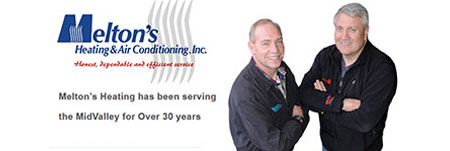
Questions to Ask When Buying a New Furnace
Questions to Ask When Buying a New Furnace
Buying a new furnace is a huge investment in your home’s comfort and efficiency, especially in areas where it gets very cold. With so many options available and factors to consider, it’s important to ask the right questions to ensure you make the best choice for your home. Here, we’ll cover the most important questions to ask when seeking furnace sales to help you navigate your options and understand system efficiency.
Do I Need to Repair or Replace My Existing System?
Before deciding on a new furnace, consider whether repairing your current system might be a better option. Generally, furnaces last between 15-20 years. If your furnace is older or frequently needs repairs, replacing it with a more efficient model could save you money in the long run. However, if your system is relatively new and issues are minor, a repair may be all that’s needed. Consulting an HVAC professional can help determine if a replacement is needed or if a repair will extend the life of your current unit.
What Type of Furnace Is Right for My Home?
The two most common types of furnaces are packaged systems and split systems. A packaged system contains both heating and cooling components in a single unit, which is ideal for homes with limited indoor space. A split system, on the other hand, separates the air conditioner and furnace, which makes it more suitable for areas with seasonal extremes in temperature. Understanding the differences can help you choose the type that best fits your home, space, and climate.
How is Furnace Size Determined?
Choosing the correct size is important for your furnace’s efficiency and your home’s comfort. A system that’s too large will cycle on and off frequently, waste energy, and reduce the lifespan of the furnace. A system that’s too small will struggle to heat your home effectively and lead to higher energy bills and increased wear. HVAC professionals use an engineering worksheet called a Manual J load calculation, which factors in the home’s square footage, insulation, number of windows, and more, to determine the ideal size for your furnace.
What Are the Efficiency Options and Ratings?
Furnace efficiency is normally measured by the Annual Fuel Utilization Efficiency (AFUE) rating. A higher AFUE rating means the furnace converts more fuel into heat and results in less waste. The minimum standard for new furnaces is around 80% AFUE, while high-efficiency models can exceed 90%. Though high-efficiency models come with a higher upfront cost, they can save you money in the long term through reduced energy bills. Discussing efficiency options with your HVAC contractor can help you find the right balance between cost and savings.
What Financing, Discounts, or Rebates Are Available?
Upgrading to a new furnace can be expensive, but many HVAC companies offer financing options to make it more affordable. Additionally, there may be local rebates, federal tax credits, or energy incentives for purchasing energy-efficient systems. Ask your contractor about any financing plans, discounts, or incentives they offer, as these can help reduce the total cost of your furnace sale.
Is Regular Maintenance Needed for a New Furnace?
Proper maintenance is a requirement to keep your new furnace running efficiently and prolong its lifespan. Most HVAC experts recommend scheduling maintenance twice a year—once before the heating season and once before the cooling season for HVAC systems with air conditioning. Routine maintenance can help catch small issues before they turn into pricey repairs, improve energy efficiency, and ensure safe operation. Many HVAC companies offer maintenance plans, which can be a cost-effective way to ensure your furnace gets regular checkups.
What Additional Features or Accessories Should I Consider?
Modern furnaces can be paired with a range of accessories that enhance comfort and indoor air quality. Some options include:
- Smart Thermostats: These allow you to control temperature settings remotely.
- Air Purifiers: These reduce allergens and pollutants.
- Humidifiers: These add moisture to the air during dry winter months.
The above accessories can improve comfort, lower energy costs, and contribute to a healthier indoor environment.
What Will the Installation Process Involve?
Installing a new furnace isn’t as simple as swapping out the old one. The installation process can involve assessing and possibly upgrading ductwork, modifying electrical connections, and ensuring proper ventilation. Be sure that you understand what the installation will entail, including any additional expenses. Make sure your contractor is licensed and certified to handle these tasks safely and correctly, as a proper installation is key to your furnace’s efficiency and performance.
What Are the Total Costs, Including Hidden Expenses?
The price tag of a new furnace isn’t the only cost you need to consider. Additional expenses can include ductwork modifications, thermostat upgrades, and any structural adjustments. Make sure your HVAC contractor provides a full estimate that includes all costs. Understanding the full cost upfront will help you avoid surprises later and ensure you’re fully prepared for the investment.
What Warranties Are Included?
Furnace warranties vary by manufacturer and model, so it’s important to understand what’s covered. Most warranties cover parts for a certain period, and some may offer extended warranties for an additional fee. A reliable warranty can save you money on unexpected repairs and give you peace of mind. Be sure to ask your contractor about any manufacturer warranties as well as any additional labor warranties they may offer.
Contact Melton’s Heating & Air Conditioning for the Best Furnace Sales in Salem!
Choosing the right furnace is a major decision that impacts your home’s comfort, energy efficiency, and monthly heating costs. By asking these questions, you can make a choice that will keep your home warm and comfortable for years to come.
At Melton’s Heating & Air Conditioning, we are committed to helping you find the perfect furnace to meet your needs. Our experienced technicians can answer all your questions and guide you through the entire process.
Contact us today to learn more about our furnace options and schedule a consultation!






